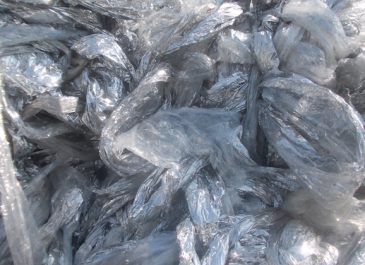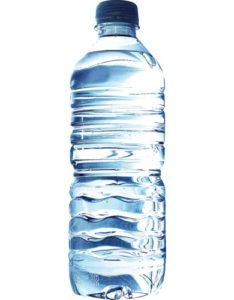Eight Ways To Reduce The Amount Of Plastic You Use
 National Geographic just released their shocking issue titled, “Planet or Plastic?” and is ripping open just how bad our plastic dependency is to date.
National Geographic just released their shocking issue titled, “Planet or Plastic?” and is ripping open just how bad our plastic dependency is to date.
An estimated 9 million tons of plastic manages to end up in the ocean every year, according to National Geographic, and more than 40 percent of plastic items are used just once before being thrown away.
California decided to start charging for plastic shopping bags in an effort to entice people to bring their own reusable bags.
But still, even after some attempts to lower the use of plastic, there is a huge crisis with the aftermath of the damage that’s already been done.
So, in an effort to help prevent the continuation of this earth drowning in plastic, here are eight simple ways you can start cutting plastic out of your life.
Bring reusable bags when shopping
This is such an easy way to prevent the need for plastic grocery bags, and all it requires is getting into the habit of bringing your own reusable bags to the store with you. Most bags can be purchased at any grocery store for a couple dollars and some even come insulated for items that need to stay cold. But using these bags should go beyond just the local supermarket. Bring them when you go to the mall or any place that might use plastic bags when you buy something.
Say no to straws
Straws are the most common item found littering the oceans, beaches, and marine life’s stomaches. How many of you have seen the video of a fisherman pulling the straw out of a poor sea turtle’s nose? It looks horrible and I would never want to live my life with a plastic straw lodged in my nostril, would you? Think about how many straws you can go through in a day. At a restaurant you’ll get a straw. Go to Starbucks and get a straw. Want a smoothie? You’ll get a straw. Say no to plastic straws and if you absolutely need one, buy reusable straws for your drinks.
Start using reusable water bottles or cups
Just like eliminating single use shopping bags, it’s time to eliminate single use plastic cups and water bottles. Buy a nice reusable water bottle that’s insulated so it can keep cold drinks cold and hot drinks hot. You can even go a step further and bring a thermos with you when you go to get your coffee, eliminating the need for a disposable cup. And if you like iced drinks from your local coffee shop buy a heavy-duty reusable cup to bring with you instead.
Stop buying products with plastic as an ingredient
It seems crazy but those face washes, hand soaps and body washes with little exfoliating beads in them are very bad for the environment. Known as microplastics, these tiny pieces of plastic are the worst because they are near impossible to filter out of the water. Avoid ingredients like polypropylene or polyethylene, which are not biodegradable, and choose natural alternatives for face and body exfoliation.
No more disposable razors
Disposable razors contribute to plastic waste because when it’s time to change them out, we throw the whole thing away. Instead, buy a razor that only requires you to change out the razor head instead of the whole item.
Start using glass or ceramic food containers
Ugh! I know this one might be hard, but try giving up plastic Tupperware. Instead of using plastic food storage containers, consider buying a set of containers that are made out of ceramic or glass. Many come with great lids that snap on and secure the food better than plastic lids.
Choose cardboard over plastic
When you can, choose cardboard over plastic. Cardboard is biodegradable and breaks down easier than plastic does. Instead of buying items like detergent or pasta in plastic containers or bags, choose the items that come in a cardboard box.
Be done with plastic cling wrap and other one-use items
It’s too easy to grab plastic everything when throwing a BBQ and the last thing you want to worry about is washing a ton of dishes. Instead of grabbing plastic plates etc., grab paper instead. When it comes to the cleanup, ditch the plastic cling wrap and use aluminum foil. Better yet, store your leftovers in your nifty glass food storage containers.
















